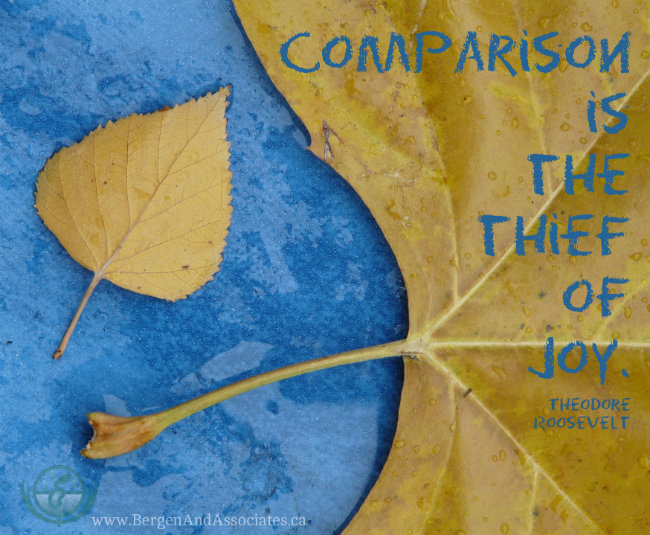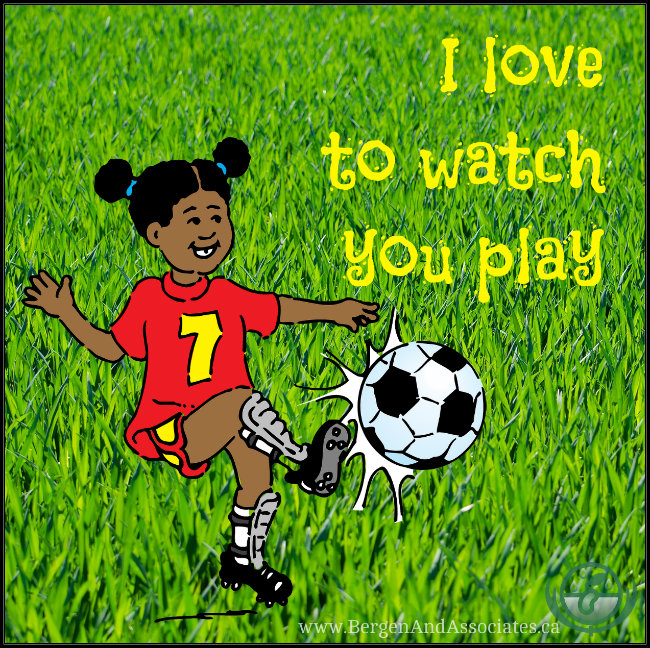Years ago, the proverbial s*%t hit the fan in our house, and we were all left reeling from what life had thrown at us. I was frantically trying to pick up the pieces, and all the while trying to look like a supportive “put together” mom to my kids. I was driving them to music and basketball and their boys’ club, arranging for sleepovers and playdates for them, and endeavouring to make their favourite cookies, brownies for the bake sale at school, etc. etc.
I noticed that we looked normal…almost too normal, given how our lives had been shattered. I thought it was weird that we looked and acted normal, given that we were getting used to a vastly different and new normal.
So, we spent two sessions with a counsellor. (FYI, the family members of therapists don’t like going to see therapists. Heavy sigh.)
And I found out something very important during those sessions. What had happened to our family was hard. But what was hardest for my kids was seeing how tired I was. They saw the toll the situation was taking on me, and it bothered them. And worst…because I was tired and stressed and they could tell…they weren’t talking to me about what was hurting them to protect me.
They felt they needed to protect me from their pain because I was tired and stressed.
Now…all mamas worry about their kids. As a mother, I know I worry more when I don’t know what’s going on (e.g. when I’m being protected by painful things being hidden). I know that it doesn’t make my life easier not to know how my kids are hurting…but how are the children supposed to know that?
(Kids…just so you know…your mama wants to know what’s bothering you, even if it hurts her. Cuz mamas like being there for their kids…sometimes their initial reactions get a little hairy as they are adjusting to the news…but mamas want to help)
And so…I learned that if I was going to be a soft place for my kids to land, they had to see that I was healthy enough to land on.
Or, to put it more bluntly…

This isn’t about using it as a threat to “make mama happy, or else”. This is about recognizing that parents set the tone in the house…how safe the child feels, how relaxed the home is, how free they are to talk. And if parents are overstressed and exhausted, the kids get the vibe…and react accordingly.
So…a few principles to watch for in your parenting, as you determine how busy a schedule you create for your kids and therefore, for yourself and your family:
1. There is a madness to comparing our child to another’s child

In this culture of scarcity, we look over the kid sitting next to ours, and our temptation is to think…
- He’s got nicer clothes than my kid
- She is better at soccer than my daughter
- He can play piano better than my child
- She got a higher grade on the spelling test t than my son
And with the pressure of comparison, we work to set our kids up for success by enrolling them in one more club/sport/music lesson/dance class/tutoring session/etc.
We worry about our kids, we want them to do well, and we want to do everything we can to help them do well…so we over schedule them, and exhaust ourselves trying to drive them everywhere that we have decided they need to get to.
When we measure our child’s abilities and development against the best and the brightest around us, we are asking/expecting them to measure up to others, and potentially unfairly. Think about it…if every parent expects their child to be in the top 25% of athletes, students, musician etc…then as a culture, we have set up each child to fail, because no one can be at the top of everything.
When we are gung ho on developing our children by over scheduling them in multiple areas, we can give them the message that they aren’t “good enough” in who they are. When a child is attending piano lesson in her dance clothes, after having eaten supper in the car on the way over…leaving a few minutes early to get to her French class…that may be unconscious message that Susie isn’t good enough when she just plays in the evenings.
2. Parents compare themselves to other parents…so unfair to measure your insides to their outsides
Parents talk with each other while the kids are in the pool or on the dance floor…and parents hate to look like they aren’t doing everything possible for their kids…and so we can fall into the trap of signing our kids up for the latest too, so as not to appear like we are not good enough. We put our kids in a rat race of lessons/classes etc. so as to demonstrate to the world our sincerity in being the best parents possible.
It looks pretty ugly in black and white, doesn’t it?
But don’t we all worry, just a little bit, that the next parent over is doing a better job than we are? Don’t we all get a little scared that we aren’t doing right by our kids? Aren’t we all wondering what other people are thinking about how we parent?
We look over at the next parent, and sees that in addition to the hockey team, that parent also enrolled their child in power skating, and maybe even extra classes in summer…and we start to wonder, “Is that what a good hockey parent is supposed to do?”
3. We forget that “no” is a gift to give our kids
We worry about damaging our kids, scarring them for life, wounding their little spirits by saying “no”:
- No, you are already signed up for basketball.
- Between all the children, we are driving to dance classes and lessons every week. It’s not a wise use of resources to spend money and time for you to be in that band as well.
- No, you already have a birthday party and Suzy has a game on Saturday, and it doesn’t work for me to drive you to your friend’s house too.
- You can choose between basketball and soccer, but hockey doesn’t fit into our family’s schedule financially or with the investment of time.
Us parents can forget that an important part of growing up is learning to deal with the frustration and anger of being told, “no”. Developing empathy for the limits of others is an important skill for future spouses and employees to have. Hearing “no” is a gift we give to our children.
4. We forget the incredible specialness of the ordinary
I remember years ago, enrolling my Junior Tribe Members in gymnastics. The club had a large sign on the wall that said something to the effect of:
“There are thousands and thousands of kids that are part of gymnastics clubs all over Canada. Someday, two or three of them will go to the Olympics. Odds are, then, astronomically–that your child is not one of them. That means that for virtually all children in gymnastics, they are not doing it to perform on the world stage or become wealthy through endorsements…they will be doing it to stay healthy, have fun, develop confidence, improve their fitness, and learn valuable skills of teamwork, cooperation, turn-taking and discipline. We invite you to be active participants in making this an enjoyable experience for your child.”
I have remembered that poster often…it took the pressure off me to push my child to be some star-gymnast, and gave me permission just to let him be him. When I took that pressure off myself, I took the pressure off him. And he would jump and tumble completely ungracefully with wild abandon. And it was beautiful.
And when I remembered this, my child could take a guitar lesson, and if he put a good effort in, then mediocre results were ok.
There is a huge personal cost to excelling enough to play hockey in the NHL…and many who have put the effort in have not succeeded after having paid that price. 99.99% of piano players go on to play for pure pleasure, not professionally…and so why would we push for unattainable excellence along with all the inherent frustration and the huge cost of time, energy, tears and drama that this carries?
I want my kids to try hard at things, and I want them to pursue excellence–within the scope of a regular life. I don’t want them to sacrifice their mental health or mine while trying hard. I’m not willing to sacrifice them being able to be children–with all that this entails…free play, time to develop relationships with their peers and with their family, and adequate rest for themselves and their chauffeur (aka–me).
Ordinary is beautiful.
5. We forget that many, many activities has it’s own price.
Love this line from a blog written by piano teacher, Karen Berger:
Look, the truth is that your kid can’t be a black belt in karate and a ski racer and a soccer player and a pianist and an “A” student and a dancer and in the school play. Kids want to try everything, parents panic if they think they are missing the next new thing. You can go broad or you can go deep; that’s your choice. But you need to know that learning to play piano takes place in the deep end of the ocean.
Some activities are intense, and to be done well, require time. And not only their time, but ours–sitting at the piano to help count, etc. When intense activities are chosen, then less activities need to be chosen as well. It’s not fair to set up our kids to fail by giving them too many challenges…we need to calculate how many balls in the air, and how heavy the balls are, and to know how many balls a particular child can handle, before we can expect them to juggle the demands of their lives well.
6. We forget what children need–the best of US
Children need their parents to believe in them. Children need their parents to provide a safe haven. Children need to be delighted in by their parents. Children need to feel treasured and valued.
That’s hard when we groaning and grumbling under the burden of driving our kids to activities. When we are tired and irritable, then it becomes “one more thing” that feels almost too much. Sitting and watching the lesson or the practice becomes a burden…and the child can feel the stress.
When we’re stressed and irritable, we are less inclined to enjoy the evening out at the rink, and more inclined to notice mistakes and be critical later. We are more apt to forget that the ref is somebody else’s child…and that they have feelings too, and that even when they are doing their best, they are gonna make mistakes.
Do you know what kids want to hear from parents? Do you know what college level athletes most longed to hear from their parents? Brown and Miller did some research…kids don’t want to hear how they could have done better, they don’t want to hear how the reefing sucked and they got robbed, and even more than being complimented on specific parts of their game…kids long to know their parents enjoyed watching them.
The six words kids most long to hear:

Kids want to be delighted in.
It’s hard to delight in anything other than a glass of wine, or a good book, or a bed, or simply some space for peace and quiet when you’re overwhelmed and exhausted. To enjoy our kids, we need to ensure that our lives are such that we can be in a position to enjoy watching them.






Write a Comment